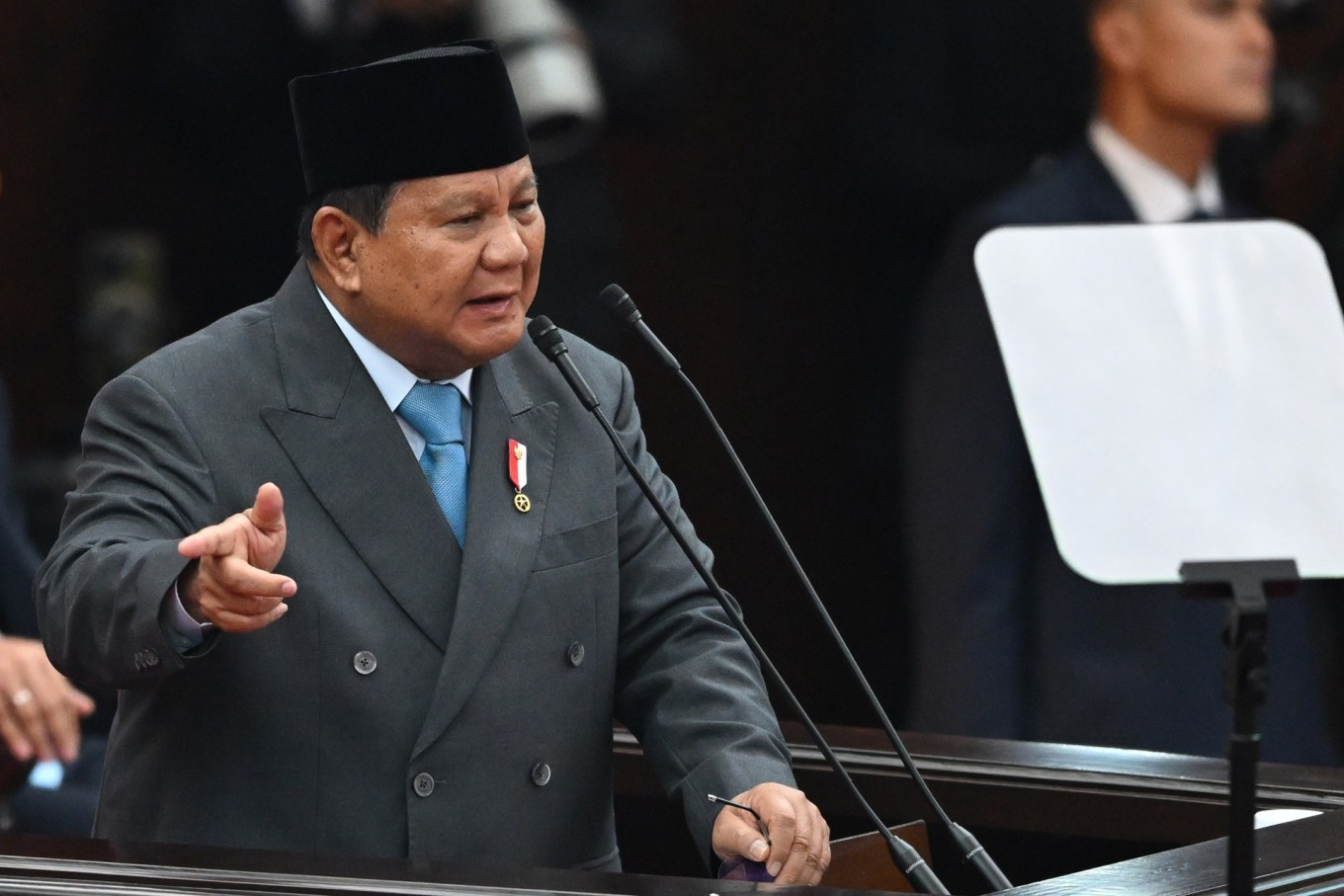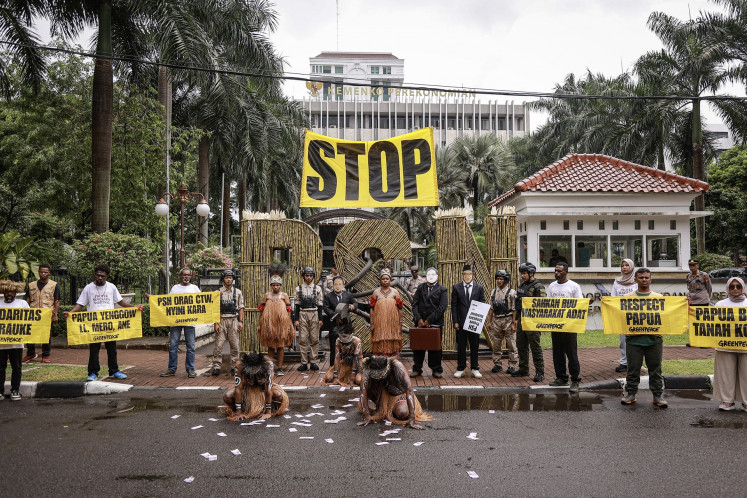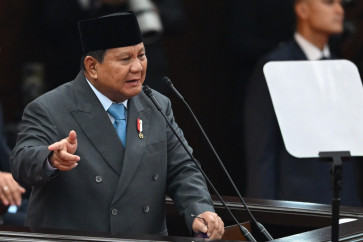Popular Reads
Top Results
Can't find what you're looking for?
View all search resultsPopular Reads
Top Results
Can't find what you're looking for?
View all search resultsAnalysis: ‘Greedynomics’ When profit trumps people
Change text size
Gift Premium Articles
to Anyone
S
erakahnomics is the latest term coined by President Prabowo Subianto to describe an economic pattern that prioritizes the profit and wealth of a privileged few over the broader welfare and interests of the public. The phrase, which translates into “greedynomics”, captures the people’s frustration over soaring prices, scarcity of basic goods and widening inequality, but raises the question: Is it fair to place all the blame on businesspeople alone?
First introduced on July 20 in Central Java, Prabowo has uttered the term on multiple occasions since, including in his annual State of the Nation Address on Aug. 15 at the People’s Consultative Assembly (MPR). He said greedynomics was driving injustice in the national economy and vowed swift action against reckless industry players that reaped massive profits at the people’s expense.
The President has likened these business actors to economic “vampires”, yet the government is also deeply enmeshed in shaping, and often distorting, the very system it now condemns. Prabowo accused certain corporations of manipulating and dominating key industries in violation of the Constitution, which mandates that the state control strategic sectors such as rice, a national staple, for the people’s prosperity.
One example he cited was the recent beras oplosan (mixed rice) scandal, in which premium rice is mixed with medium- or low-grade rice and sold at premium prices. However, Indonesia’s rice governance is tightly overseen by the state, from seed and fertilizer distribution to stockpiling, imports and distribution. Price surges in this sector point not only to private profiteering but also to poor stock management and weak logistical enforcement by the government. While some entrepreneurs exploit the system, failures in state oversight remain a key factor, yet only private businesses are branded “vampires”.
Greedynomics is therefore not just an economic issue, but also a symptom of a broader systemic failure to uphold social justice and equitable power distribution. The resulting disparity reflects an economic system that grants vast opportunities to a select few while leaving the majority behind.
According to the World Inequality Report 2022, the richest 10 percent of Indonesians control nearly 60 percent of national wealth, while the bottom 50 percent holds just 4.1 percent. The Indonesia Inequality Report 2024 by the Center of Economic and Law Studies (CELIOS) goes further: The wealth of the country’s 50 richest individuals equals the combined wealth of 50 million Indonesians.
Much of this wealth comes from control over land and extractive industries – plantations, coal and mineral mining, oil and gas – which are dominated by powerful conglomerates, some linked to prominent political figures. These include Prabowo and his brother Hashim Djojohadikusumo through the Arsari Group, National Economic Council chairman Luhut Pandjaitan via PT Toba Sejahtera, Golkar Party politician Aburizal Bakrie through PT Bumi Resources and brothers Erick and Boy Thohir via PT Adaro Energy.



















